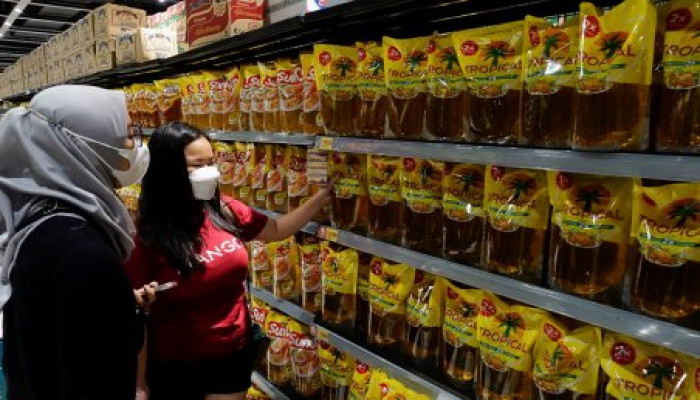Edible oil prices to spike as Indonesia bans palm oil exports
- In Reports
- 07:42 PM, Apr 23, 2022
- Myind Staff
Indonesia will effectively ban palm oil exports from April 28, until further notice, after President Joko Widodo on Friday announced a halt of shipments of cooking oil and its raw material to control soaring domestic prices.
The measure could further inflame global food inflation that soared to a record high following Russia's invasion of Ukraine, raise costs for packaged food producers and force governments to choose between using vegetable oils in food or for biofuel.
In a video broadcast, Jokowi, as the president is popularly known, said the policy aimed to ensure availability of food products at home in the world's top palm oil producer and exporter.
"I will monitor and evaluate the implementation of this policy so availability of cooking oil in the domestic market becomes abundant and affordable," he said.
Soybean oil prices on the Chicago Board of Trade rose 4.5% to a record high of 83.21 cents per pound.
The move will hurt consumers not only in biggest buyer India but globally, as palm is the world's most consumed oil, Atul Chaturvedi, president of trade body the Solvent Extractors Association of India (SEA), told Reuters.
"This move is rather unfortunate and totally unexpected," he said.
Global prices of crude palm oil, which Indonesia uses for cooking oil, have surged to historic highs this year amid rising demand and weak output from top producers Indonesia and Malaysia, plus a previous move by Indonesia to restrict palm oil exports in January that was later lifted in March.
Household product and food companies including Procter & Gamble Co, Nestle SA and Unilever PLC are large purchasers of palm oil. Oreo cookie maker Mondelez International Inc accounts for .5% of palm oil consumption globally, according to its website.
Meanwhile, global edible oil markets have also been roiled this year by Russia's Ukraine invasion, which cut off shipments of sunflower oil from the region. Russian calls its action a "special operation". Ukraine and its Western allies call it an unprovoked attack.
The Black Sea accounts for 76% of world sunflower oil exports and commercial shipping from the region has been severely affected since Russian forces entered Ukraine in February.
Large supplies of alternatives including soy and rapeseed oil are not readily available either.
Indonesia is responsible for over half of the global palm oil supply. Malaysian producers say the world’s second largest palm oil exporter, which is facing a production shortfall due to a pandemic-induced labour shortage, is unlikely to be able to plug the supply gap left by Indonesia.
Indonesia has since 2018 stopped the issuance of new permits for palm oil plantations, often blamed for deforestation and destroying habitats of endangered animals such as orangutans.
Palm oil industry association GAPKI said it would adhere to the policy but asked for government re-evaluation of the ban should it hurt the sector.
"If this policy has any negative impact on the sustainability of the palm oil sector, we would ask the government to re-evaluate the policy," it said in a statement.
In Indonesia, the retail price of cooking oil averages 26,436 rupiah ($1.84) per litre, up more than 40% so far this year. In some provinces across the country, the prices have nearly doubled in the past month alone, according to a price monitoring page.
Image courtesy: Reuters







Comments